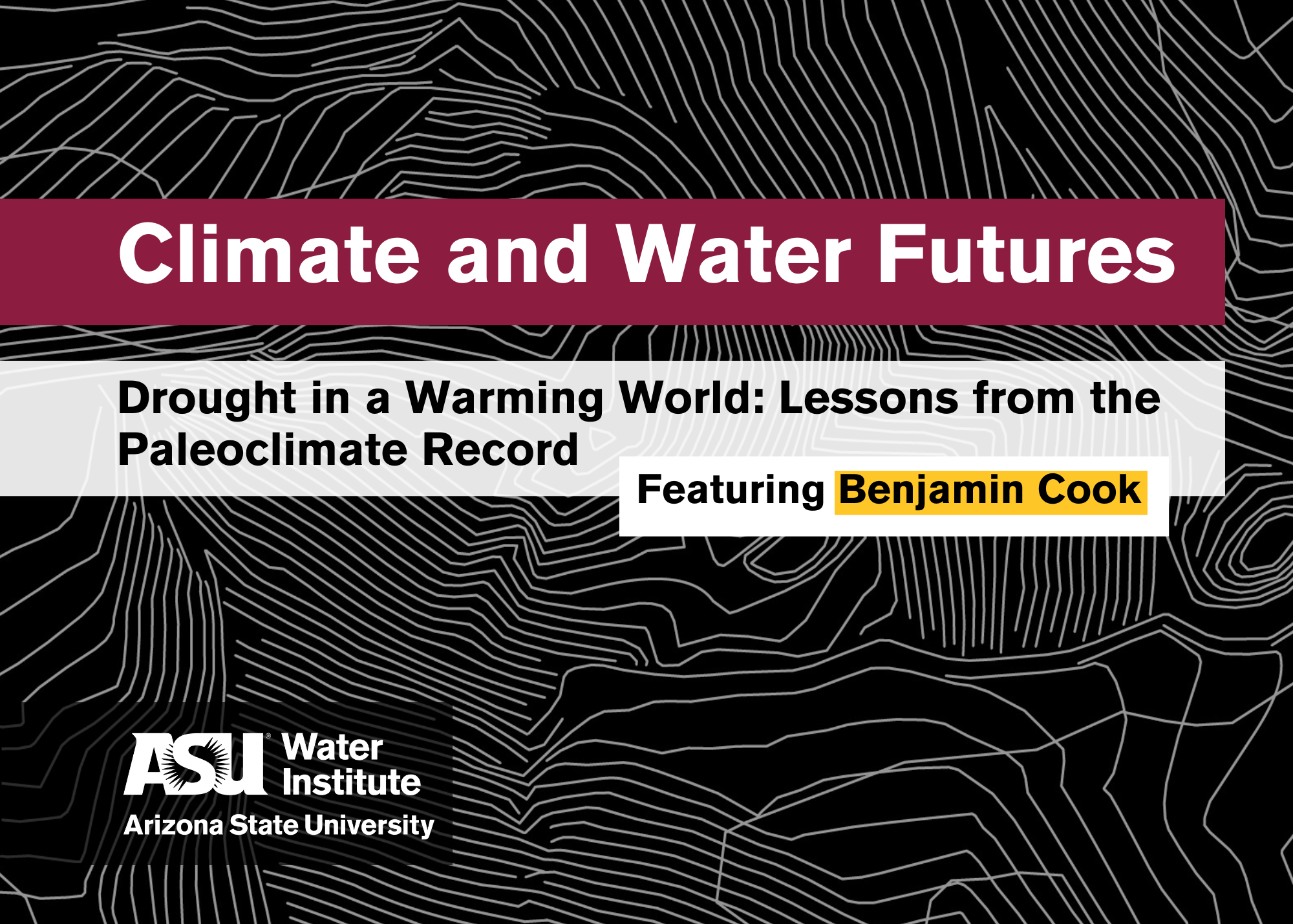Climate and Water Futures - Drought in a Warming World: Lessons from the Paleoclimate Record

Event description
- Academic events
- Free
- Science
- Sustainability
About the series
Climate variability and change have emerged as critical challenges for water systems around the world. Much of the academic effort is directed at producing projections for water availability and floods and their potential impacts for the 2030-2100 period based on projected emission scenarios. However, considerable uncertainty and significant methodological biases plague these projections, limiting their utility.
The seminar series will seek to highlight what can be understood and projected in the near and longer-term based on our understanding of theoretical climate dynamics, the large-scale features of the organization of the ocean and climate that produce persistent regimes of extreme climate, inferences from paleoclimate data, IPCC style projections, and modern machine learning/AI tools. The series will also highlight some of the responses to climate extremes and climate change effects on, for example, water quality, scarcity, access, and agricultural availability, which impact nations and communities differently.
About the talk
Climate change is expected to increase the severity and frequency of drought in many regions. However, much of our understanding of drought responses to global warming are based on the very limited observational record, or process-based climate models with their own biases and weaknesses. In this talk, Dr. Cook will demonstrate the value of tree-ring based paleo-records of drought from the last millennium for understanding past drought variability, informing the role of climate change in modern-day drought events, and serving as important constraints on climate model projections. More specifically, at global scales and for the American Southwest, he will show how we have used paleoclimate information to (1) demonstrate the capacity of the climate system to generate multi-decadal “megadrought” events; (2) establish how climate change is already intensifying drought severity; and (3) investigate future shifts in both extreme single year and multi-decadal drought events. Further, looking forward, Dr. Cook will discuss the strong potential for paleoclimate to inform how the dynamics of drought events may shift in a warmer world, one of the major outstanding uncertainties in extreme events research.
About the speaker
Dr. Benjamin Cook is an interdisciplinary Earth System Scientist working at the NASA Goddard Institute for Space Studies and Columbia University. His research uses climate and earth system models, observations, and paleoclimate reconstructions to understand how anthropogenic processes, including climate change, affect the hydrologic cycle and the terrestrial biosphere. These include topics such as the past and future of drought variability and risk, how land use and management (e.g., irrigation) affect extreme events like heat waves, and how the terrestrial biosphere responds and influences the climate system. Dr. Cook has participated as a contributing author on the Sixth Assessment Report of the Intergovernmental Panel on Climate Change (Working Groups I and II) and the Fifth National Climate Assessment. He also teaches year-round at Columbia University in the Sustainability Management program and has written a textbook, Drought: An Interdisciplinary Perspective, published by Columbia University Press in 2019.
Event contact
Thursday, November 21, 2024
11:00 a.m. - 11:30 a.m. | Q&A + refreshments

